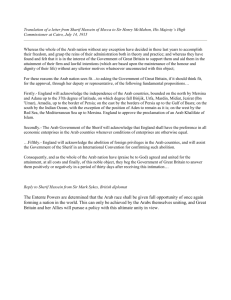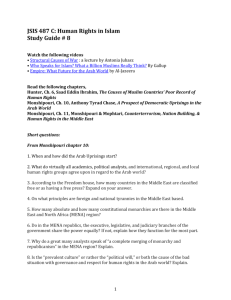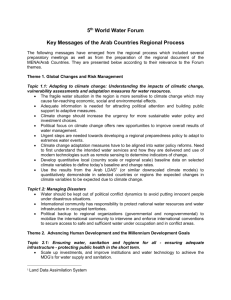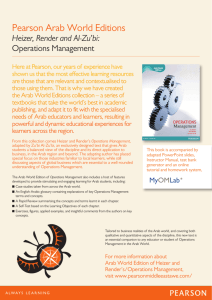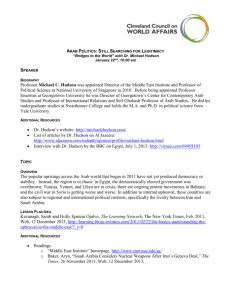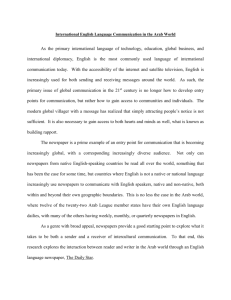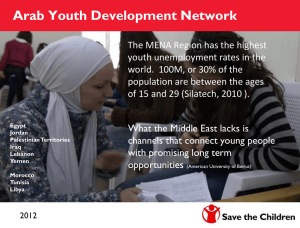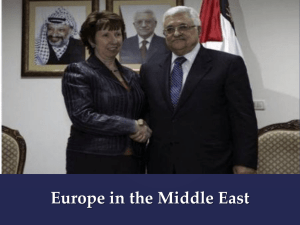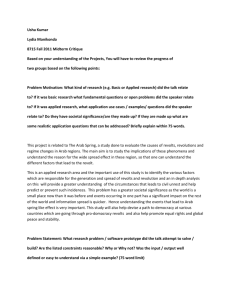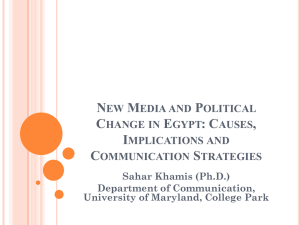Abstract for Journal of Youth Studies Conference 2015
advertisement
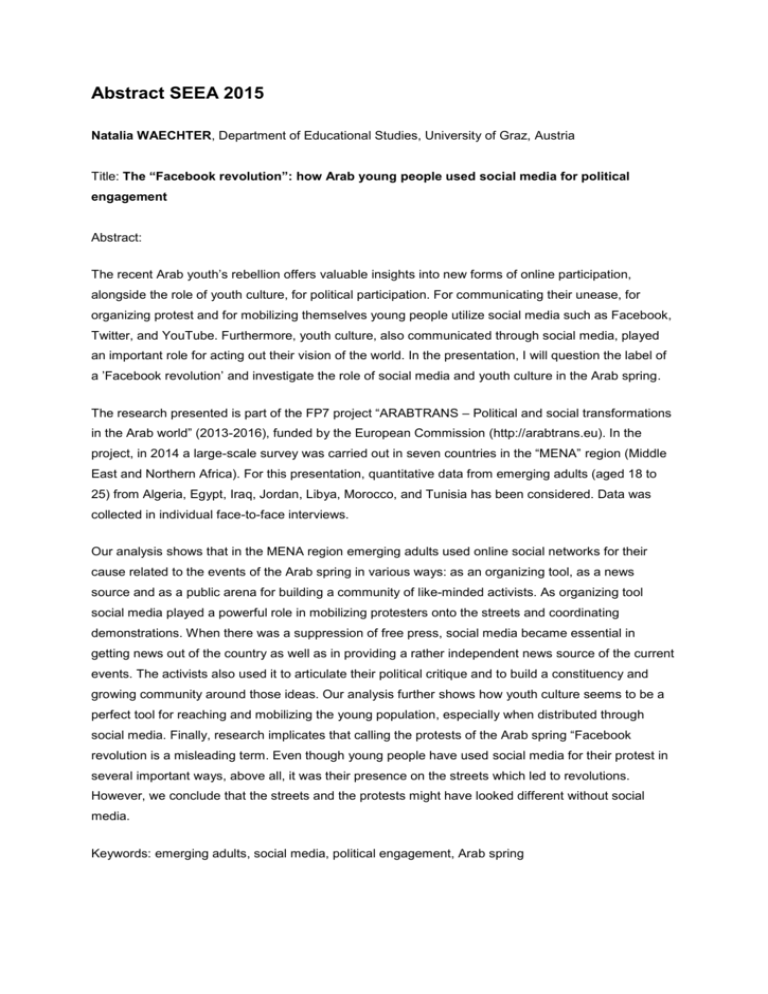
Abstract SEEA 2015 Natalia WAECHTER, Department of Educational Studies, University of Graz, Austria Title: The “Facebook revolution”: how Arab young people used social media for political engagement Abstract: The recent Arab youth’s rebellion offers valuable insights into new forms of online participation, alongside the role of youth culture, for political participation. For communicating their unease, for organizing protest and for mobilizing themselves young people utilize social media such as Facebook, Twitter, and YouTube. Furthermore, youth culture, also communicated through social media, played an important role for acting out their vision of the world. In the presentation, I will question the label of a ’Facebook revolution’ and investigate the role of social media and youth culture in the Arab spring. The research presented is part of the FP7 project “ARABTRANS – Political and social transformations in the Arab world” (2013-2016), funded by the European Commission (http://arabtrans.eu). In the project, in 2014 a large-scale survey was carried out in seven countries in the “MENA” region (Middle East and Northern Africa). For this presentation, quantitative data from emerging adults (aged 18 to 25) from Algeria, Egypt, Iraq, Jordan, Libya, Morocco, and Tunisia has been considered. Data was collected in individual face-to-face interviews. Our analysis shows that in the MENA region emerging adults used online social networks for their cause related to the events of the Arab spring in various ways: as an organizing tool, as a news source and as a public arena for building a community of like-minded activists. As organizing tool social media played a powerful role in mobilizing protesters onto the streets and coordinating demonstrations. When there was a suppression of free press, social media became essential in getting news out of the country as well as in providing a rather independent news source of the current events. The activists also used it to articulate their political critique and to build a constituency and growing community around those ideas. Our analysis further shows how youth culture seems to be a perfect tool for reaching and mobilizing the young population, especially when distributed through social media. Finally, research implicates that calling the protests of the Arab spring “Facebook revolution is a misleading term. Even though young people have used social media for their protest in several important ways, above all, it was their presence on the streets which led to revolutions. However, we conclude that the streets and the protests might have looked different without social media. Keywords: emerging adults, social media, political engagement, Arab spring Author details and contact information: Prof. Dr. Natalia Waechter Affiliation: University of Graz Address: Merangasse 70, 8010 Graz, Austria Email: natalia.waechter@uni-graz.at Phone: ++43 (0) 650 202 5566

